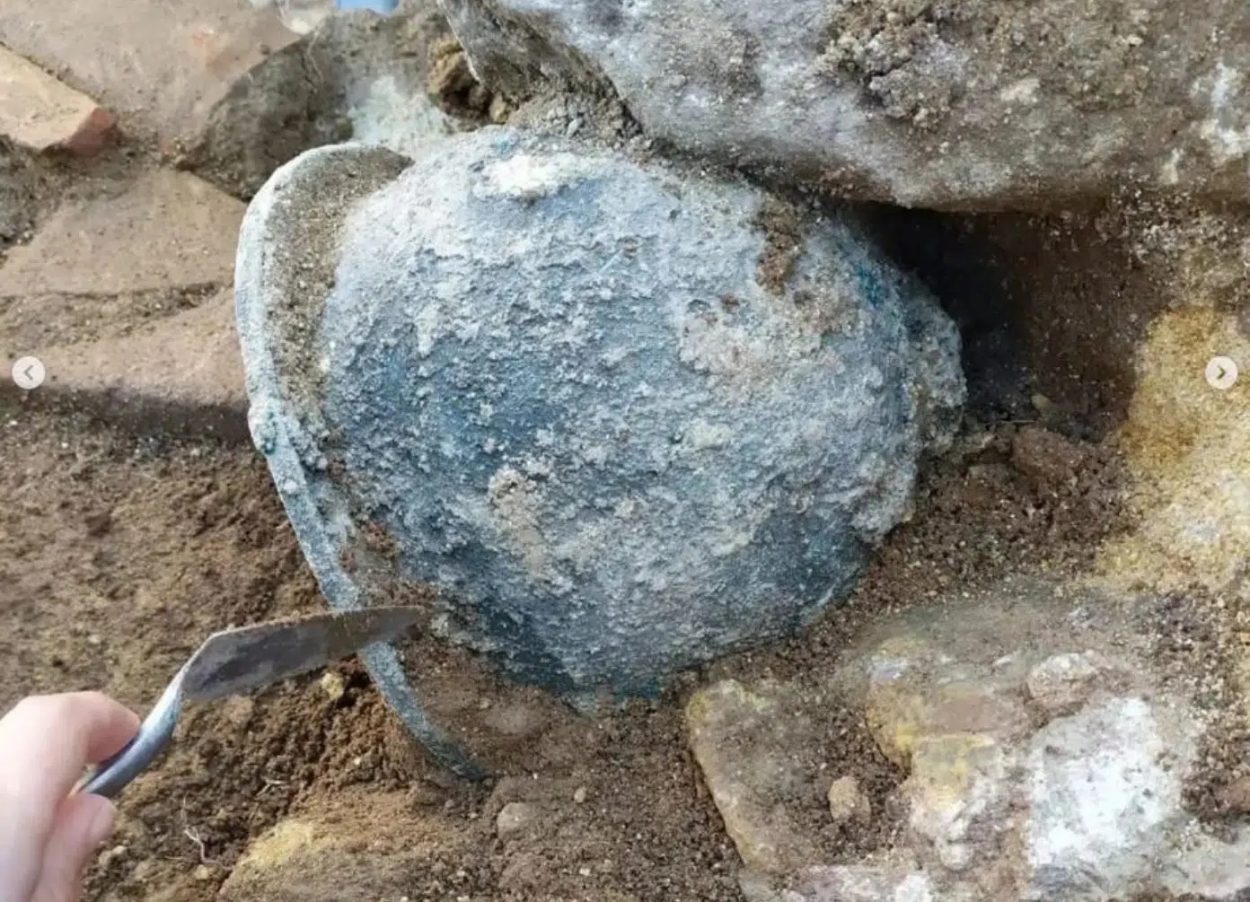Archaeologists excavating at the acropolis of Elea-Velia have uncovered a well-preserved Ancient Greek helmet.
Elea-Velia, also known as Hyele, was founded by Greeks around 538–535 BC on the coast of the Tyrrhenian Sea in the present-day province of Salerno, Italy.
The city was known as a centre of philosophy and learning, which was home to Parmenides and Zeno of Elea, both prominent figures in the Eleatic school to which they belonged.
Archaeologists have been conducting excavations at the acropolis of Elea-Velia, where in 2022 a sanctuary dedicated to the goddess Athena was uncovered. Athena was an Ancient Greek goddess associated with wisdom, warfare, and handicraft, often depicted wearing a helmet and holding a spear.
The sanctuary was built following the Battle of Alalia, a conflict between Greeks and the allied Etruscans and Carthaginians between 540 BC and 535 BC.
Excavations within the sanctuary have revealed a well-preserved Ancient Greek helmet, the third such example discovered at Elea-Velia. According to the researchers, the helmet was likely deposited as an offering to Athena following a battle or during period of conflict.
The researchers also found the remains of a painted brick wall, possibly an early form of the sanctuary, and polygonal blocks, a feature of ancient Greek architecture found at important sites such as Delphi.
According to the researchers, another notable find is the discovery of ceramics inscribed with the word “sacred”, further indicating the importance of the site.
In a press statement, the Culture Minister told the press that the discoveries Greek helmet and inscription underscored the importance of investing in archaeological research to reveal “important pieces of the history of the Mediterranean.”
Header Image Credit : Italian Ministry of Culture





